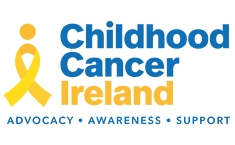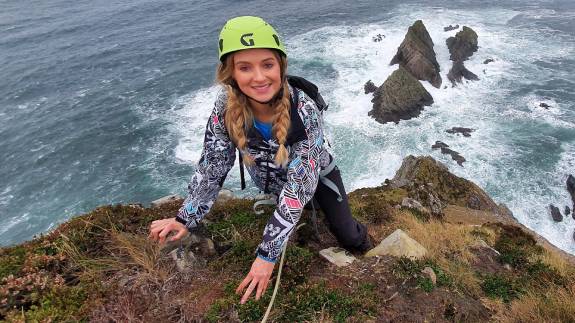Surviving childhood, adolescent or young adult cancer (CAYA) is what you’ve been working towards for the last few years. Leaving treatment is a time to celebrate but can also be an anxious time for patients and parents. Living with childhood cancer is all-consuming – so what now? How do you go forward in this new life as a survivor? How has it changed you and your family?
As Dr. Giulio D’Angio said: “A cure is not enough”.
Irish cure rates for CAYA cancers reach and exceed 80%, comparable to best European experience. Treatments include radiation, chemotherapy and stem cell transplant. While essential, and increasingly effective, these treatments can lead to late effects which require long term follow up.
Some survivors can experience medical, cognitive and psychosocial problems and require ongoing access to multi-disciplinary medical and counselling services.
All deserve lifelong support to monitor and protect their health and well-being and to ensure they enjoy the best possible quality of life.
At Childhood Cancer Ireland we believe that we need to connect the dots so that all survivors have access to a national comprehensive and structured long-term support service to identify any potential issues as soon as possible and to ensure they enjoy the best possible quality of life. They’ve earned it.
We support and represent survivors and their families and are working to ensure their voices are heard voice “Nothing About Us Without Us”.
For parents
The last day of treatment is a time for both celebration and fear. The protocol schedules and frequent appointments provided reassurance and structure. While most of us are thrilled that the days of medication and procedures have ended, we also fear a future without medication to keep the disease away.
Concerns about relapse are an almost certainty, and we often feel vulnerable after active treatment ends. It is the uncertainty that lies before us, the constant interaction with the medical team is ending, and a new stage of the lifelong journey is beginning. No longer are your routines revolving around being sick, taking medicines, checking blood counts, cleaning Freddie’s and going to the hospital, yet we cannot return to our pre-cancer lives, we need to learn to adjust to our a new normal.
This may be the first opportunity you have had to really think about everything that your family has gone through over the last couple of years. You might find yourself going back over the diagnosis and treatment, which can be a lot to digest.
With a childhood, adolescent or young adult cancer diagnosis comes the awareness that life can be cruel and unpredictable. Many parents and children feel that treatment is keeping cancer away, the end of treatment sometimes leaves us feeling exposed and vulnerable. When treatment ends, we must find ways to live with the uncertainty and fear, to find a balance between hope and reasonable worry.
The best advice we can give, as parents who have walked in your shoes, is that you, your child, and your family need to talk to one another – examine your emotions, decide what course of action best suits you, and work together toward a healthy life after cancer. This journey will have twists and turns and ups and downs.
Medical Summary
It is important that you receive a medical summary from your oncology/haematology team when your child finishes treatment.
This summary will give any other healthcare professional you may encounter a good insight into your medical history as a CAYA cancer survivor.
Survivorship Care Plan
A survivorship care plan (also called a follow-up care plan) is developed for each child, adolescent and young adult leaving treatment. Survivorship care plans are based on the type of cancer and treatment you received. Some patients may need to return frequently for visits initially after they have completed treatment, while others may not need to return as often.
Follow-up care plans include the following:
- Examinations and tests or procedures to check that you remain healthy, and a schedule of when they are needed.
- Care and support to manage any long-term side effects and to check for late effects.
- Referrals to, and coordination with, specialists such as cardiologists, education specialist, endocrinologists, physical therapists, and psychologists and to appropriate treatments, clinical studies, and rehabilitation specialists.
- Recommendations for healthy behaviours, such as advice regarding nutrition and physical exercise.
Follow-Up Care Clinics/Survivorship Clinics
Children who have been treated for cancer will be referred to follow-up care clinics or survivorship clinics.
At these clinics, your child will see their consultants or specialist in cardiology, endocrinology, fertility, nutrition, psychology, and/or pulmonology, for example, who will monitor your child’s health.
These survivorship clinics will be held at CHI at Crumlin, if your child attended here, until your child is 16 years of age, or earlier relative to your child’s diagnosis and treatment received.
After 16 years of age (and before your child turns 18 years) a plan will be made to graduate your child to HSE Adult services (community/GP or hospital-based).
Long-term and late effects
While many side effects go away once treatment has ended, long-term side effects, such as fatigue, may take some time to go away. Other side effects, called late effects, may not occur until months, or even years, after treatment.
Whether or not your child may have late effects of treatment depends on the type of cancer your child had and how it was treated, as well as personal factors, such as:
- Cancer-related factors, such as the type of cancer and where it was in the body
- Treatment-related factors, such as the type and amount of treatment and/or surgery
- Patient-related factors, such as your child’s age at diagnosis, length of time since diagnosis/treatment, personal and family health history, and health habits.
Types of late effects
Late effects may be physical, emotional, or cognitive. Some parents want to know what symptoms to look out for, should any arise, while others will find this overwhelming.
You can always talk to your doctor about your child’s recovery and any concerns that you may have. If it is helpful, here is some information on potential late effects.
Possible physical late effects
Physical late effects may affect your child’s growth and development. Some children who have been treated for cancer have many physical late effects, whereas others have relatively few.
Possible emotional late effects
Emotional late effects include changes to your child’s mood, feelings, and actions. Many children are very resilient after cancer treatment, while others experience social and/or emotional problems. If your child is not sleeping well and no longer enjoys activities that he once did, it is important to talk with your child’s doctor about having your child evaluated for depression.
Possible cognitive late effects
Cognitive late effects include changes in your child’s ability to memorise, learn, and think. These types of late effects are more likely to occur in children who’ve had certain cancers, such as brain and spinal cord tumours, head and neck cancers, and some types of leukaemia. Again, the likelihood of these effects depends on the age of your child during treatment and the type and duration of treatment.
(National Cancer Institute – www.cancer.gov)
The emotions attached to survivorship
You, along with your child or adolescent, have weathered the worst storm of your life. Be kind to yourself. It is normal to experience a range of strong emotions after what you have been through and as you adjust to life after treatment.
These emotions can include
- Fear of recurrence
- Anxiety
- Guilt
- Grief
- Gratitude and joy
Knowing that other survivors and family members share these emotions can help you and them feel less alone.
Peer support
You may wish to talk to a trained peer support volunteer. In collaboration with Childhood Cancer Ireland, CanTeen Ireland and CanCare 4 Living, the Irish Cancer Society runs a peer-to-peer support service for parents and adult family members of children, adolescents and young adults with cancer.
Childhood Cancer Foundation Ireland has two trained peer support volunteers who offer support to parents. To be referred to one of the Irish Cancer Society’s trained parent volunteers please call the Irish Cancer Society Support Line on Freephone 1800 200 700 or email [email protected].
Support groups
There are a number of support groups that may be able to offer support and advice. You will find them listed here
Further information
The Children’s Cancer and Leukaemia Group in the UK has a number of leaflets available to download on life after treatment, which you may find helpful. Some of this information may be specific to the UK, but there is also a lot of general advice available.
https://www.cclg.org.uk/publications/After-treatment-finishes
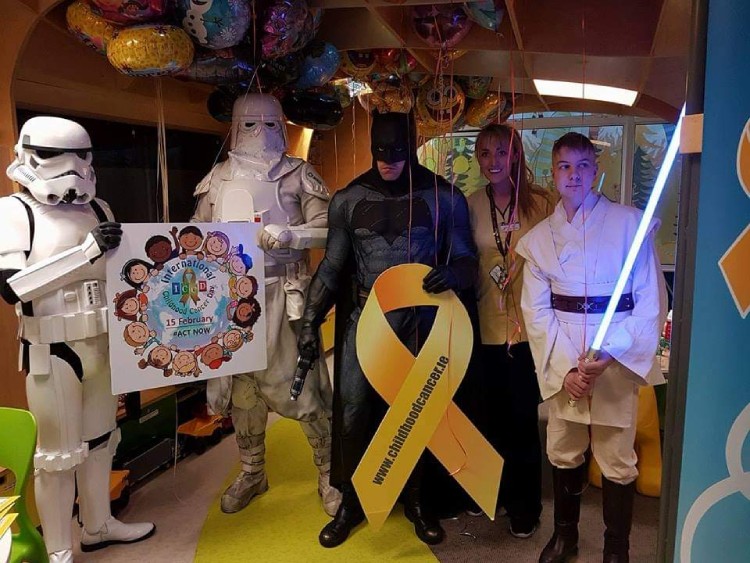
Dylan
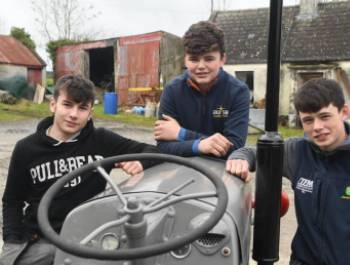
Jack
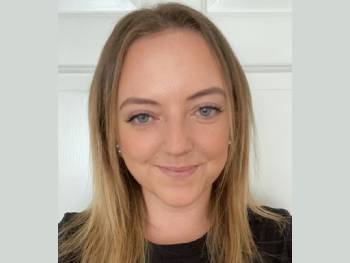
Aoife
For young children
It’s worth noting that some CAYA survivors experience the reactions outlined above, even if they remember very little––or even nothing––about their cancer experience.
If your child participated in the Beads of Courage® programme, they may like to take their beads out and look at them or use their beads as a way to explain their story to others, even to themselves. If they are too young to remember when they were sick, you can use their beads as a way to start a conversation about their journey, if you wish.
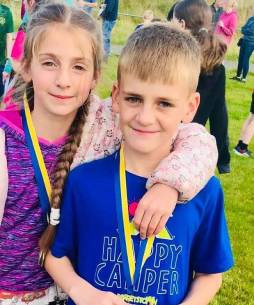
Sean with his super sib Faye
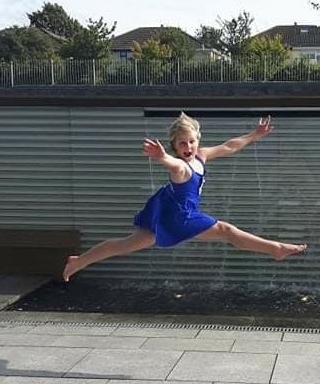
Erica Frizzell
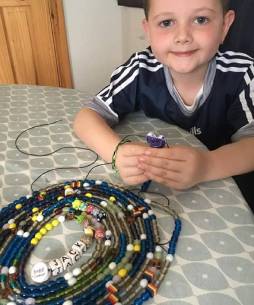
Jack
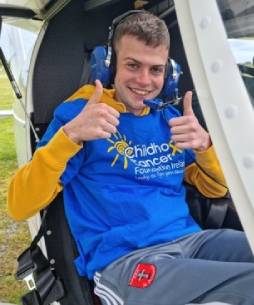
Kyle Casey
For adolescent and young adult survivors
Unfortunately, life-saving chemotherapy and radiotherapy treatments can have long-lasting effects on growing bodies and developing minds.
These may not be obvious straight away. In fact, you may have left the care of the hospital where you received your treatment by the time you notice the late effects.
Self advocacy
Advocacy means fighting for change, speaking up for your needs and asking questions. As an adolescent or young adult survivor of cancer, you may find yourself educating your family, friends, and healthcare providers about your physical and psychological health as you navigate your life after treatment.
It’s important that you have information about your diagnosis and the treatments you received so that you can share with other healthcare providers. This will help you to advocate for the care you need as you look after your health and well-being.
Survivorship Care Plan
A survivorship care plan (also called a follow-up care plan) is developed for each child, adolescent and young adult leaving treatment. Survivorship care plans are based on the type of cancer and treatment you received. Some patients may need to return for visits each month for the first year after they have completed treatment, while others may not need to return as often.
Follow-up care plans include the following:
- Exams and tests or procedures to check that you remain healthy, and a schedule of when they are needed.
- Care and support to manage any long-term side effects and check for late effects.
- Referrals to, and coordination with, specialists such as cardiologists, education specialist, endocrinologists, physical therapists, and psychologists and to appropriate treatments, clinical studies, and rehabilitation specialists.
- Recommendations for healthy behaviours, such as advice regarding nutrition and physical exercise.
The emotions attached to survivorship
Your cancer journey is unique to you, no two people are alike. Part of surviving CAYA cancer is dealing with and educating family, friends, and your community about the medical and emotional aspects of survivorship. You may find that family members want to pretend that it never happened. You may be told too that it is great it is behind you, when you are still coming to terms with everything that has happened.
Karen’s Story
Dr Karen O’Neill, Specialist Registrar in CHI at Crumlin, recently spoke to the HSE Health Matters publication about her journey from cancer patient to paediatrician, and how she gave cancer the boot! You’ll find Karen’s inspiring story on pages 8-9.
Support groups
There are a number of support groups that may be able to offer support and advice. You will find them listed here
Further information
The Children’s Cancer and Leukaemia Group in the UK has a number of leaflets available to download on life after treatment, which you may find helpful. Some of this information may be specific to the UK, but there is also a lot of general advice available.
https://www.cclg.org.uk/publications/After-treatment-finishes
The Irish Cancer Society (Services for children with cancer | Irish Cancer Society) has some useful publications for parents, which you may find helpful.
